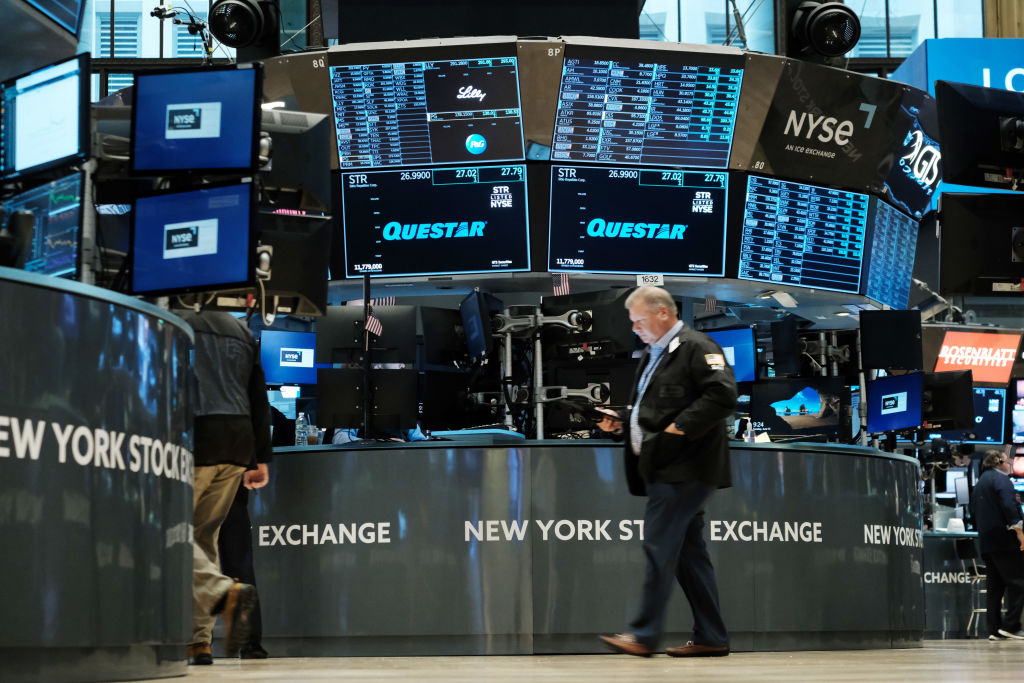The R-word: Is this what a recession feels like?
What is the definition of a 'recession'?

A free daily email with the biggest news stories of the day – and the best features from TheWeek.com
You are now subscribed
Your newsletter sign-up was successful
The smartest insight and analysis, from all perspectives, rounded up from around the web:
Let's call it what it is, said The Wall Street Journal in an editorial: The U.S. is in a recession. Everyone can see this¸ except President Biden and the Democrats, who want "to pretend the bad news isn't happening." But the numbers don't lie: Last week's GDP data showed that the economy contracted by 0.9 percent in the second quarter, following a 1.6 percent decline in the first three months of the year. Two quarters of the economy shrinking is the common definition of a recession, and what Americans see around them bears this out. Inflation is eating into wages and has caused consumer spending to slip "to its slowest rate since the pandemic." Everywhere, "businesses are bracing for cooling demand." Yet Biden dismisses the data as "chatter" from pundits and is determined to claim that the last quarter showed "signs of economic progress.'" That's out of touch. The president "inherited a growing economy primed to roar back from the pandemic, and in barely a year and a half he has dragged America back to the 1970s."
Does it really look to you like the U.S. is in a prolonged economic slump? asked Allan Sloan in The Washington Post. "It doesn't look like that to me." Unemployment is still at 3.6 percent, wages are rising, and, at least in the crucial area of gas prices, inflation has started to fall. It's not just Biden who doesn't think we are in a recession. "The official arbiter of when recessions begin and end is the Business Cycle Dating Committee, which is part of the National Bureau of Economic Research." They have not made a judgment yet, and may take into 2023 to do so. But they've never bought the "six months of declining real GDP" rule of thumb that the press often repeats. In fact, the economist who has leads the eight-member committee calls that measure "irrelevant."
The Week
Escape your echo chamber. Get the facts behind the news, plus analysis from multiple perspectives.

Sign up for The Week's Free Newsletters
From our morning news briefing to a weekly Good News Newsletter, get the best of The Week delivered directly to your inbox.
From our morning news briefing to a weekly Good News Newsletter, get the best of The Week delivered directly to your inbox.
The "scare headlines are misleading," said Robert Shapiro in Washington Monthly. At the same time that GDP was contracting, "employment grew rapidly," outpacing "even the best periods of recent expansion." No recessions on record have begun amid such a strong labor market. The U.S. economy is "the strongest and most resilient in the world" said Dennis Kneale in The Wall Street Journal. There are plenty of signs the economy has room to grow. GM, for instance, has 100,000 cars already built and ready to ship to showrooms as more microchips become available. "U.S. households had $4.2 trillion more cash at the end of last year compared with 2019." That's a lot of cushion against an economic decline.
"Are we in a recession?" is the wrong question to ask, said Derek Thompson in The Atlantic. "The U.S. economy is shaped by the decisions of several hundred million people." What difference does it make "if eight oracles have muttered the word recession" or not? It doesn't change the price of your coffee or the income in your pocket. "The reality of this economy is that high inflation is making people feel poorer, rising interest rates are discouraging some investment, and it's all happening in the context of incredibly low unemployment." Does that meet the definition of a recession? It doesn't matter.
This article was first published in the latest issue of The Week magazine. If you want to read more like it, you can try six risk-free issues of the magazine here.
A free daily email with the biggest news stories of the day – and the best features from TheWeek.com